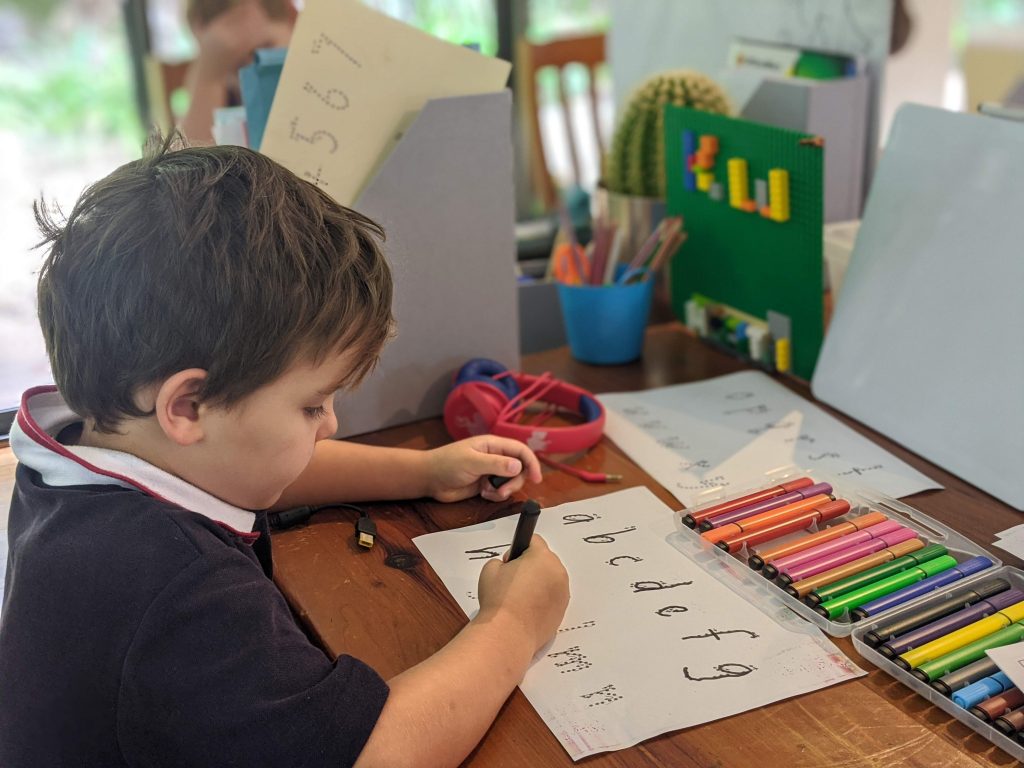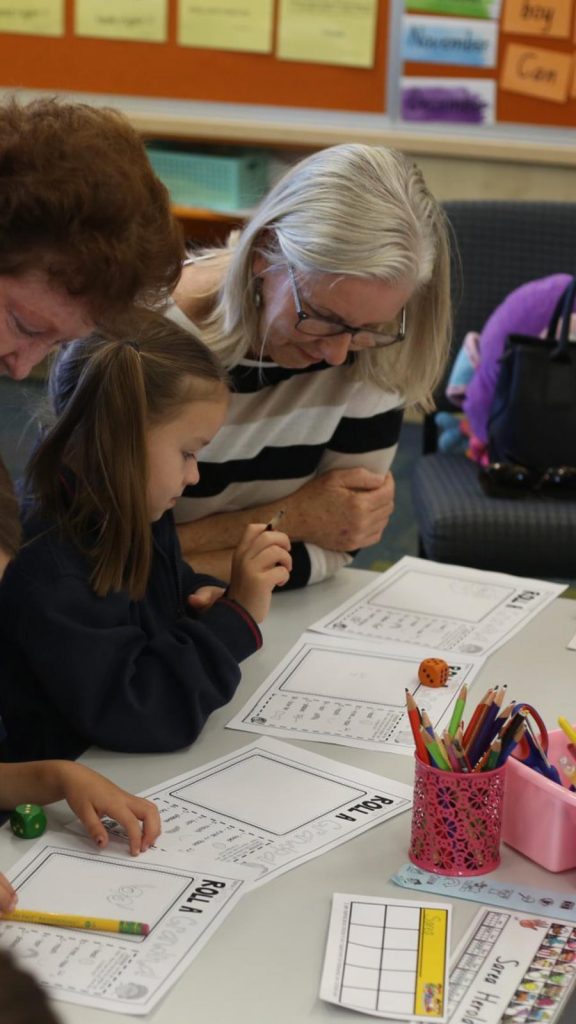Author: Zoe Gianduzzo, Paediatric Occupational Therapist
3 min read
There’s a moment when every parent asks themselves this question. Is my child ready for school? The lead up to ‘big school’ can be daunting for parents. It’s normal to feel uncertain. To help ease your concerns, we’ve put together 10 tips for school readiness. “

Is my child ready for school?
For many children school is an exciting (and daunting) new adventure. It is for parents too, but for many different reasons. For children starting school we think about their self-regulation, social skills, focus and attention, language and communication skills, self-care skills, pre-academic skills, and gross and fine motor skills. At the age of 4 or 5, we’re not expecting our children to be immediately amazing at school. Most children will experience some sort of challenge when it comes to this big transition. Here are 10 tips to help your child feel as ready as possible when starting school:
- Make sure your child is excited about school. If they mention feeling worried or anxious, try to figure out what the worry is about. Talk to them about what you’re noticing in their body, and how they can change it. You can also model helpful behaviours and emotions to your child during this big life change.
- Talk about what school might look like and how the day might happen. Help your child form a general plan in their brain. E.g. they understand what recess and lunchtime are and know there will be specific times for desk work and play. Providing predictability is a simple and easy way to reduce anxiety or behaviours.
- Familiarise your child with their school, classroom, and teacher (if possible). At minimum, you can drive past the school regularly so they become familiar with what it looks like and where it is. Even better if you can walk through the grounds, check out the classroom or meet their teacher before the big day.

4. Develop a consistent morning routine before school starts. Routines are a simple yet effective way to support regulation, focus, and attention throughout the day. Practice your school morning routine in the last week or two before school starts so that it becomes second nature to them. This makes it one less thing for your child to get used to on their first day.
5. Go for outings. Visit the library, the zoo, the beach, or the park to practice getting ready for the day – pack a backpack with a lunch box, tie up shoes with laces, and bring a jumper. This way your child can practice getting organised for the school day. You will also be right next to them during these outings to help them be as independent as possible; opening packets of food in their lunchbox, re-doing their shoelaces, and taking off and on a jumper.
6. Practice fine motor. Engage in fine motor activities in all sorts of places, not just the table! Buy some chalk and draw on the concrete driveway. “Paint” the fence with water. Play board games on the ground. Introducing a range of fine motor activities will strengthen your child’s overall skill, necessary for school. Teachers will love you for getting some scissor and glue stick practice in!
7. Play, play, and more play! Play is how children learn and develop their skills, especially social and gross motor. Have opportunities for you to play with your child, and for your child to play with others. We’ve got some great video resources to help you with this.
8. Engage in ‘sit-down’ activities at the table. Practice sitting at the table and focusing. Start with a motivational, fun activity for 2-3 minutes, and slowly build the time up as you go. This could be drawing, reading, crafts, or whatever your child is interested in!
9. Let your child struggle and make mistakes. And make sure you’re right beside them when this happens. Use encouraging words to help them persist and get through it. This will help them develop their resilience and self-efficacy, necessary for the school environment. This is all about preparing the child for the road, not the road for the child. You won’t be there at school, so helping them be comfortable with challenges and mistakes will really support their learning journey.
10. Encourage reading and a curious mind. School is a place for children to learn about themselves, others, and the world around them. Fostering a sense of curiosity and wonder, especially with books, will help your child feel comfortable in play, learning, and asking questions.
If you feel like your child is struggling to achieve any of these areas before school starts, talk to your paediatrician or an occupational therapist for further guidance. Contact MoveAbout today.
GET IN TOUCH

